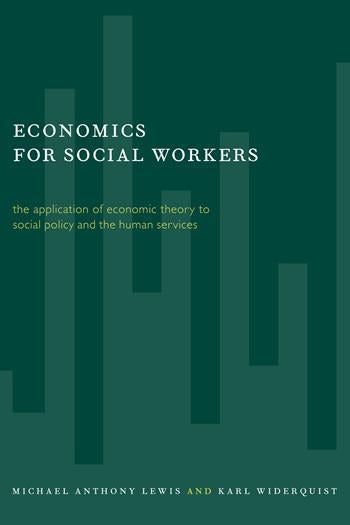List of Books
- Universal Basic Income: Essential Knowledge (2024)
- The Problem of Property: Taking the Freedom of Nonowners Seriously (2023)
- The Prehistory of Private Property: Implications for Modern Political Theory (2021)
- A Critical Analysis of Basic Income Experiments for Researchers, Policymakers, and Citizens (2018)
- Prehistoric Myths in Modern Political Philosophy (2017)
- Independence, Propertylessness, and Basic Income: A Theory of Freedom as the Power to Say No (2013)
- Basic Income: An Anthology of Contemporary Research (2013)
- Exporting the Alaska Model: Adapting the Permanent Fund Dividend for Reform around the World (2012)
- Alaska’s Permanent Fund Dividend: Examining its Suitability as a Model (2012)
- The Ethics and Economics of the Basic Income Guarantee (2005)
- Economics for Social Workers: The Application of Economic Theory to Social Policy and the Human Services (2002)
Karl Widerquist, 2023. The Problem of Property: Taking the Freedom of Nonowners Seriously (publisher’s webpage), Palgrave MacMillan (138 pages) – (Free preview: early draft of the book).
- This book is Karl Widerquist’s first statement of the “indepentarian” theory of property, called, “Justice as the Pursuit of Accord” (JPA). It argues the natural-rights-based arguments for unequal private property have failed to establish that institution as right. It is a legal privilege, inconsistent with the maximum equal freedom from interference. The book discusses how to establish and maintain a property system that best promotes freedom from interference. Paying taxes and obeying regulations is part of the purchase price of the right to control, use, or use-up any good made partly out of natural resources (i.e. all goods), because doing so interferes with people who control, use, or use-up fewer natural resources. A sufficient portion of that tax revenue has to be redistributed in the form of a Universal Basic Income to ensure the property system is in the interest of everyone.
- Book Launch video: 30-minute presentation followed by 30-minute discussion
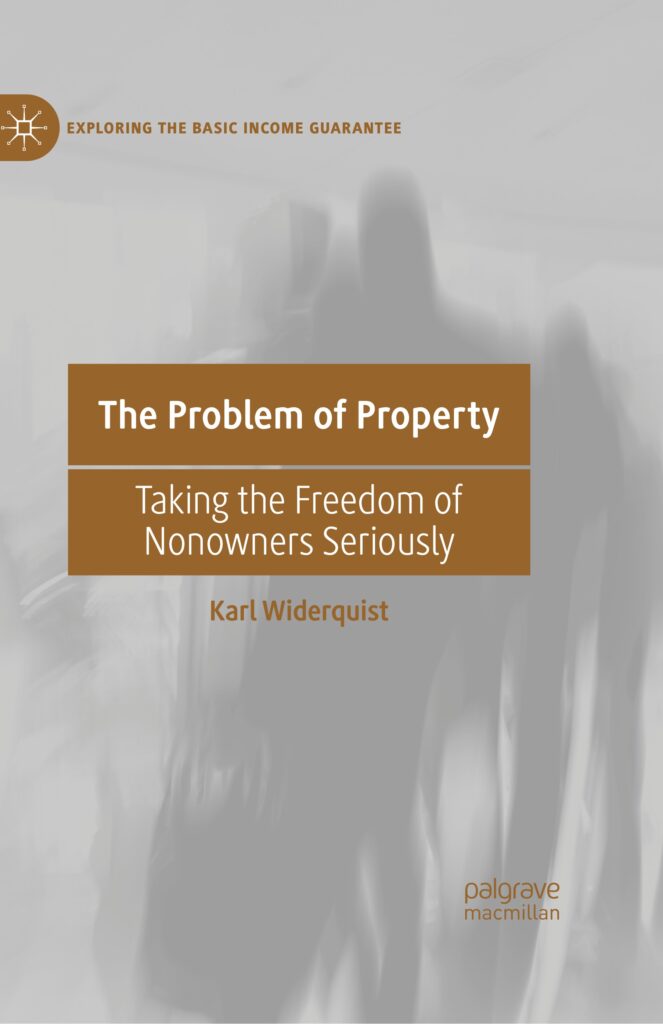
Karl Widerquist and Grant S. McCall, 2021. The Prehistory of Private Property: Implications for Modern Political Theory (publisher’s webpage), Edinburgh: Edinburgh University Press (317 pages) – (Free preview: early draft of the book).
- This book examines the original and development of the private property system to show that three commonly held beliefs about private property are false: the belief that individualistic private property develops naturally, the belief that private property promotes negative freedom, and the belief that inequality is natural and inevitable.
- Short video presentation based on the book
- Longer video presentation about the book
- Written summary of the book
- Playlist of 13 videos related to this book and the first book in the series, Prehistoric Myths
- Spanish translation: Prehistoria de la propiedad privada: Implicaciones para la teoría política contemporánea. Translated by Sara Ortega. Madrid: Bauplan Books, 2023.
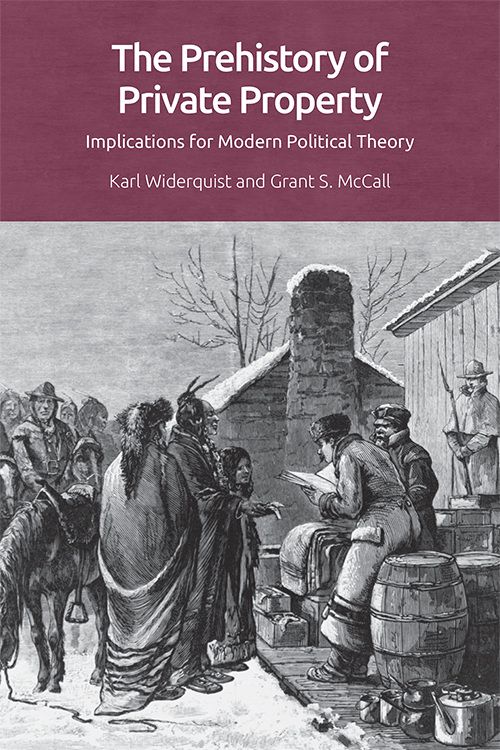
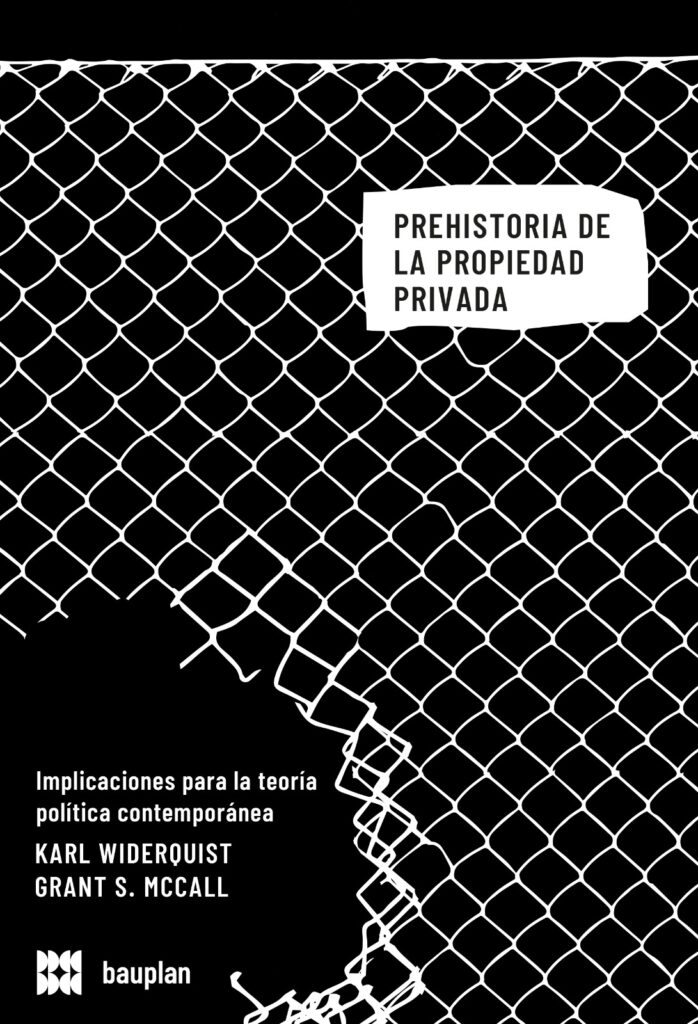
Karl Widerquist and Grant S. McCall, 2018. A Critical Analysis of Basic Income Experiments for Researchers, Policymakers, and Citizens (publisher’s webpage), Edinburgh: Edinburgh University Press (317 pages) – (Free preview: early draft of the book).
- This book discusses the problems and possibilities of UBI experiments, arguing that only with a strong understanding of the limitations of UBI experiments can we fully appreciate what we can learn from them.
- Video presentation based on the book
- Written summary of the book
- Review of the book
- More articles on UBI experiments
- Playlist of 7 videos on UBI experiments
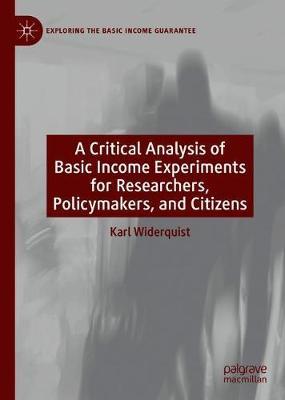
Karl Widerquist and Grant S. McCall, 2017. Prehistoric Myths in Modern Political Philosophy (publisher’s webpage), Edinburgh: Edinburgh University Press (274 pages) – (This book is available open access: click here for a free download of the complete book).
- This book uses extensive anthropological and historical evidence to falsify the commonly held belief that everyone benefits from the state and/or the property system. Although many people benefit, the least advantage are worse off in contemporary capitalist states than people typically were in stateless societies with common property systems.
- Free Online Appendix to Prehistoric Myths in Modern Political Philosophy (70 pages)
- Hour-long video-lecture based on the book
- 8-mintue audio summary of the book
- Written summary of the book
- Short opinion piece based on the book
- “Why private property?” Text of discussion based partly on the book
- Playlist of 13 videos related to this book and the sequel, the Prehistory of Private Property
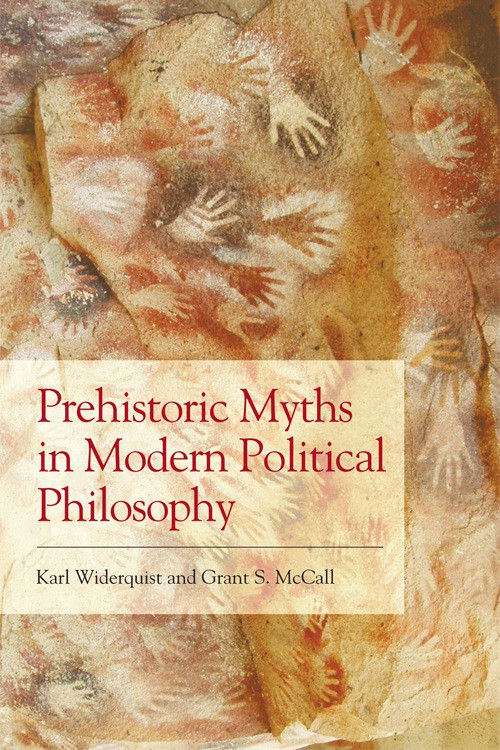
Karl Widerquist, March 2013. Independence, Propertylessness, and Basic Income: A Theory of Freedom as the Power to Say No (publisher’s webpage), New York: Palgrave Macmillan (241 pages) – (Free preview: early draft of the book).
- This book outlines a theory of freedom as independence, “effective control self-ownership, or “freedom as the power to say no. In doing so, it begins my effort to create an “indepentarian” theory of justice called, justice as the pursuit of accord.
- Hour-long video lecture based on the book
- 9-minute speech based on the indepentarian theory of freedom and justice
- List of articles and videos related to indepentarianism
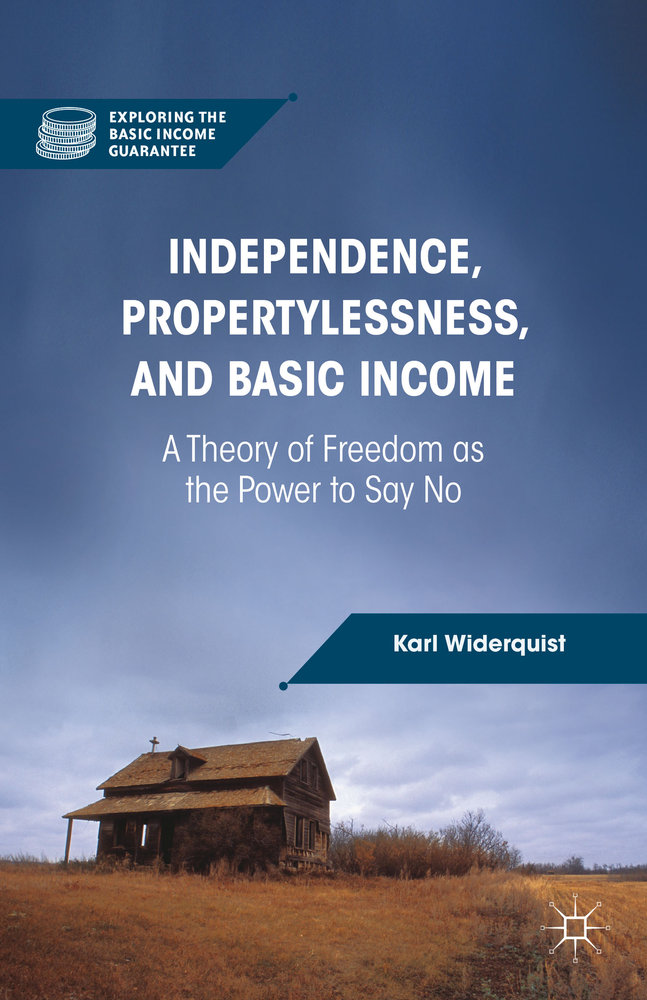
Karl Widerquist, Jose Noguera, Yannick Vanderborght, and Jurgen De Wispelaere (eds.), 2013. Basic Income: An Anthology of Contemporary Research (publisher’s webpage), Oxford: Wiley-Blackwell (563 pages) – (Free preview: early draft of the book).
- This book is a compilation of six decades of some of the most influential Basic Income literature.
- It includes 74 chapters of both empirical research and theoretical argumentation on all aspects of the Basic Income proposal.
- It includes sections on freedom, justice, reciprocity and exploitation, feminism, economics, post-productivism, implementation, institutions, and politics.
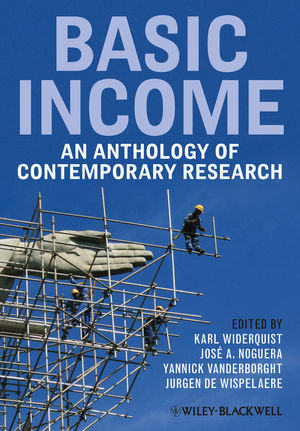
Karl Widerquist and Michael W. Howard (eds.) 2012. Exporting the Alaska Model: Adapting the Permanent Fund Dividend for Reform around the World (publisher’s webpage), New York: Palgrave Macmillan (291 pages) – (Free preview: early draft of the book).
- This two book series (including Exporting the Alaska Model and Alaska’s Permanent Fund Dividend) discusses the Alaska Dividend as a model of a small Universal Basic Income in practice.
- Lessons From Alaska (video 1:02:15)
- Links related articles and videos
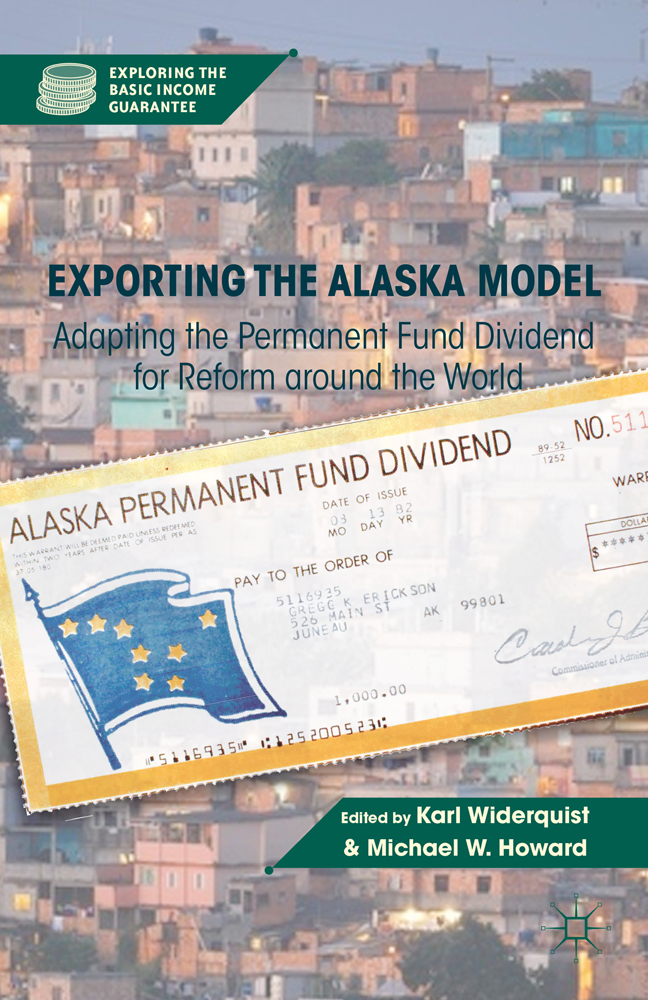
Karl Widerquist and Michael W. Howard (eds.) 2012. Alaska’s Permanent Fund Dividend: Examining its Suitability as a Model (publisher’s webpage), New York: Palgrave Macmillan (267 pages) – (Free preview: early draft of the book).
- This two book series (including Exporting the Alaska Model and Alaska’s Permanent Fund Dividend) discusses the Alaska Dividend as a model of a small Universal Basic Income in practice.
- Lessons From Alaska (video 1:02:15)
- Links related articles and videos
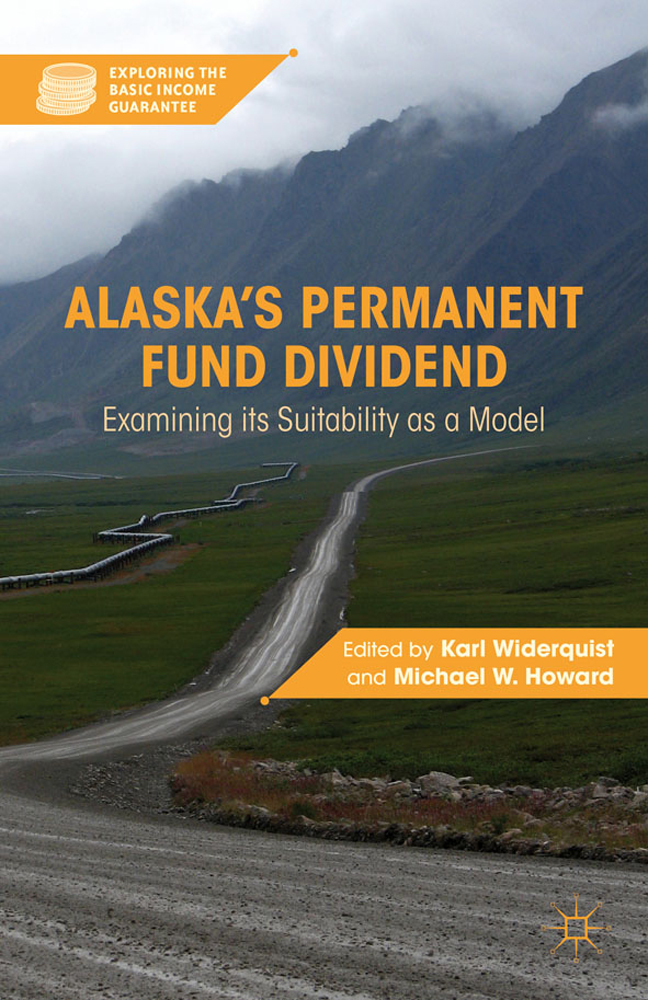
Karl Widerquist, Michael Anthony Lewis, and Steven Pressman (eds.), 2005. The Ethics and Economics of the Basic Income Guarantee (publisher’s webpage), Aldershot, UK: Ashgate (352 pages) – (The Ethics and Economics of the Basic Income Guarantee).
- This book is a collection of essays discussing the Universal Basic Income from economic and philosophical perspectives.
- My contributions to this book include:
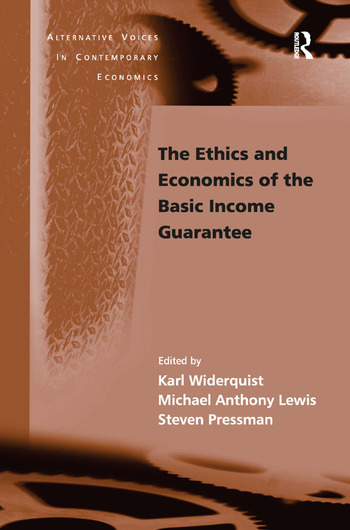
Michael Anthony Lewis and Karl Widerquist, 2002. Economics for Social Workers: The Application of Economic Theory to Social Policy and the Human Services (publisher’s webpage), New York: Columbia University Press (204 pages) – (Free preview: early draft of the book).
- This textbook explains what we believe every social worker needs to know about economic theory. It is typically assigned for courses in economics required for the degree of Masters in Social Work.
